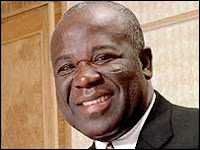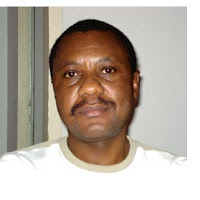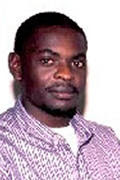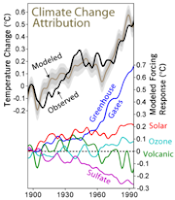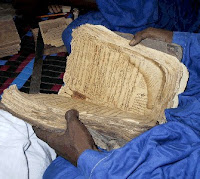Dibussi Tande writes in African Path about the impact of educational systems that do not foster ingenuity,resourcefulness and invention amongst other things.Quoting the World Bank:
The ability of a society to produce, select, adapt, commercialize, and use knowledge is critical for sustained economic growth and improved living standards. Knowledge has become the most important factor in economic development.
And comparing
Cameroon to
IndiaToday Cameroon is where India was some two decades ago – and it has the potential to become what India (or even Mauritius) is today. However, unlike India, Cameroon is crippled by the “civil service mentality”, and it lacks a crop of creative economic and political visionaries similar to those who transformed Bangalore from a sleepy backwater Indian town into an IT outsourcing and software Mecca.
Nowhere has that absence of vision been most manifested than in the country’s higher education system which was established primarily to train administrators for the post colonial government. Time has not changed the focus of Cameroon’s higher education system even as the world has moved on.
He alludes to a point made in the
The EntrepreneurThe deficit of knowledge and learning is killing Cameroon and Africa softly. Despite a proliferation of schools and colleges, the lack of true learning and creativity has held the African captive to underdevelopment. In Cameroon we have graduates who are just producing what they were taught in school, instead of producing new things…This has left Cameroon with millions of qualified illiterates and graduates who are failures as far as life and service is concerned. A Master's degree holder moves with little or no creativity. Thousands of poorly educated Cameroonians only wait for opportunities to work where others have worked. Few are involved in the creation of new things. The outdated education they received then gives birth to confusion.
And brings to our attention a critical piece of analysis by
Jeremy Weate on his observations about
Nigeria.
The longer I live here, the more I realize that technological interventions or money pumped in by donors will do little to transform, unless there is a primary focus on business processes (whether in the commercial or the public sector)… Nigerians enjoy the benefits of cars, laptops, mobile phones and other modern technology, but live in a society which does not understand the discipline and rigour it takes to produce such technology. This creates an alienated culture where technology and modern industrial processes are seen as a mystery. No one seems to be able to solve the aviation crisis. No one seems to be able to create value-added manufacturing processes; no one seems to stem the tide of an import-economy, turning into an export-economy. So few technological interventions (in any sector) meet with any kind of success.
Truly
intellectually curious,
technologically innovative and self sustaining societies cannot be built off a bedrock of
reactive thinking coupled with disinterest and indolence .The challenge is to disrupt these ossified ways of thought and catalyze the forces of creativity.
 A 110 page report(pdf) by Kroll covered in the Guardian:
A 110 page report(pdf) by Kroll covered in the Guardian:







